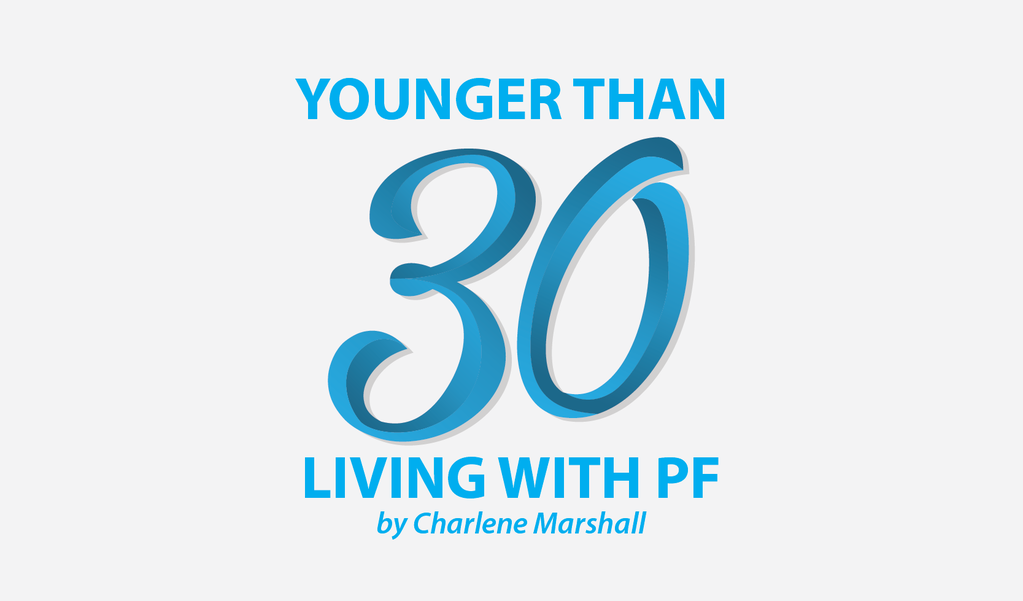I Am Changed Since My Diagnosis

It likely wouldn’t surprise anyone to hear that after being diagnosed with a life-threatening illness, there are many things about which a patient might feel differently. There also are changes both internally and externally that a patient will endure. These can be grander things, such as the way someone looks at their life and chooses to live with their disease, or they can be small things, such as how they structure their day or spend time with people they love.
Since being diagnosed with idiopathic pulmonary fibrosis (IPF) in early 2016, I would say both of these changes apply to me, and overall, I consider myself to be a very different person from who I was before my diagnosis.
Some of these changes are due to my physical limitations, and some are more about the way I want to spend my time. For example, I used to be very physically active and I loved waking up early to get the day started, running around all day with a full-time job, and then playing my favorite sports late into the evening hours. I would be able to do this most days of the week without tiring, and I also maintained a full social schedule.
Now, due to my declining lung function, I struggle to maintain the necessary functions of each day — getting dressed, showering, going to work, cooking, doing laundry, and taking care of my dog. I can’t do any physical activities anymore, but I look forward to the day I can be this active again.
There have been a lot of internal changes, too, in terms of what I value most now and how I cope with things. These changes have been the hardest of all. Following are a few examples of those changes, and how I differ the most from before my IPF:
From extrovert to introvert
I used to thrive by being around people all the time. I loved being part of sports teams, volunteering for social events, and just being out with different groups of friends. I still enjoy being around people; in fact, I am comforted when I am around the people I love most, including friends, family and colleagues. However, I find that I am desperate for some alone-and-quiet time now, too, and I never used to need this.
I look forward to weekends when I can spend time by myself or with my dog, in the quiet and comfort of my home. I spend time working on quiet projects such as scrapbooking, journaling, knitting, or just catching up on television shows, and these are the things that rejuvenate me now.
I find that since my diagnosis, large crowds of people easily overstimulate me or I am frustrated easily if I have to wait in large lines. This may sound like I am just impatient (which probably is partially true), but more so this comes from not having the physical energy to stand in lines or hold the items I am waiting to pay for because I am just too tired.
I really need my quiet time away from other people now, and this is a huge change for me.
Spending time in vs. time out
I used to love going out with friends for dinner or for drinks and getting dressed up to do so. Now, since my diagnosis of IPF, I am much more interested in spending time with friends at my home or theirs while in the comfort of our pajamas doing something quiet. This might include watching a movie together, working on a project, going for a drive together, or just catching up with one another.
I would much rather cook a meal for a friend than go out to dinner now, which also is a huge change since my diagnosis. I don’t know if this is due to fatigue or if it is just because I value quality time more than I did before, and I find this comes from being together in a more intimate environment instead of a restaurant with hundreds of other people.
Increased anxiety
I have shared this in previous columns, I am much more anxious since my diagnosis than ever before. Specifically, I am anxious about being around others who are sick, and when I hear someone coughing, I do whatever I can to avoid them. I also am anxious about ensuring I have everything I need in my house, such as fresh groceries, in the event I feel unwell and can’t go out and pick up things when I need them.
These are just some of the changes I have experienced since my diagnosis, but there are many more. To other IPF patients: What are some ways you’ve changed since your diagnosis?
***
Note: Pulmonary Fibrosis News is strictly a news and information website about the disease. It does not provide medical advice, diagnosis, or treatment. This content is not intended to be a substitute for professional medical advice, diagnosis, or treatment. Always seek the advice of your physician or other qualified health provider with any questions you may have regarding a medical condition. Never disregard professional medical advice or delay in seeking it because of something you have read on this website. The opinions expressed in this column are not those of Pulmonary Fibrosis News or its parent company, Bionews Services, and are intended to spark discussion about issues pertaining to pulmonary fibrosis.









Russel J Fabre
Patience! I find that I need to remind myself to be kind and thoughtful before I open my mouth to speak. I have begun to develop a very short fuse so I need to slow my thoughts and be considerate of other peoples feelings. I don't want to be remembered as that grumpy old man that got mean when he was sick! I want to be remembered as the fun loving, free-spirited, spontaneous, person that I am.
Joyce Douglas
Me too Russel. It isn't easy being kind and thoughtful all the time when we are trying to do something that used to be so easy and now is difficult. Like sweeping the floor even...now not so easy. I find I get cranky and ready to swear when my hose get in the dirt/dust. I need to remind myself that it would look funny if I was watching it. Not doing it..I also want to be remembered as a fun loving person. Need to focus on that.
Bob Golding
I like your attitude Russel. I was diagnosed with IPF in March 2017. I will be 70 on the 18th.Dec 2017. I am still trying to come to terms with the situation. I have always tried to keep fit, i don't have any of the usual symptoms yet. All i get from the doctor/specialist is a watch and wait approach. It seems with IPF there are more questions than answers..
Isabel Mickle
My anxiety has gotten terrible. I always loved to go to events with friends or special times for our family- our grandparent times that can’t be replaced. Football and cheerleading to cheer them on and first birthdays and birthdays with fun, laughter and a lot of moving around. Anything that involves getting dressed up and just thinking of many people around me, I get such an anxious feeling. My stomach gets knots, hot and sweats and sometimes I even get physically sick. Since I’m on anxiety medication ( minimum dose) I have to take an added one.
I have the same worries as you. Worry who will cough or sneeze, do I have enough oxygen so I don’t run out( we always carry a spare) and getting super tired without doing much of anything. Sorry I wrote so much. At least I know I’m not alone with this.
Joyce Douglas
All we can do Isabel is keep on trying to go out and be with family. I suppose trying to plan it for when there aren't many people around is harder, but if it makes you sick to do it then your family could possibly come and report how the games went, or what went on without you having to go to the game. Anxiety is rather common for us with IPF. We don't know our future and that is rather scary.
Christopher Brooks
Thanks, Charlene, Russell, and Isabel--
I am just now moving into the introverted stage of my IPF, and your posts are perfect for me quoting or even forwarding to my friends. I used to go out five nights a week to be social; now I stay home and write, read, or watch TV. It's good to know others face the same situation. I will return to see what other wisdom you all provide. Thanks!
Isabel Mickle x
I’m glad that what we write helped you. It is difficult sometimes as you never really know how my day will be until all of a sudden “pow” it hits me. I have to tell myself my grandkids are expecting me or we had these plans already, I can’t let my husband or other people down. Do I still feel anxious and somewhat nauseous especially with the holidays ahead? Well yes but then I sit back, take a few deep breaths and realize that I’ve made it through yet another year.So for all events/holidays I try and make it as special as I can. One easy way is when I give a card PUT THE CURRENT YEAR on the corner. it is just my way of saying now you have a remembrance of me always.
Now with the holidays right in front of us- Have enough O2 tanks with you, take all your meds to feel as well as possible, and realize how much happiness you give to others. MOST IMPORTANTLY think of us and SMILE. ?Happy Holidays ?
Russ Wyckoff
For me, it is comforting to know what others with IPF are expiriancing because I need to know I'm not alone
and there is a lot of people with this disease that can relate to what is expirianced. One thing that I don't hear is how Ofev affects them. I was diagnosed with IPF in March of this year 2017 and taking this medicine within a month. I tend to think Ofev side effects are
to blame for all my discomforts. It makes me wonder what I would feel like if I wasn't taking the Ofev.
I'm 70 years old and haven't expeerianced fear of passing but a great deal of anxiety getting things in order prior to the time I don't have the ability to make good decisions.
Haidar Husien
i guys ; thanks for sharing your personal stories .
I am 25 yo , a resident doctor .
diagnised with ankylosing spondylitis , crohn's two years ago .
from one year to now i have experiencrd chest pain espically at right side , short of breat , general tiring , very low of energy .
but still my Spo2 >95% .
my cxr has showed some interstitial infiltrations but chest ct came normal .
My symptoms incresed during last three months , breath rate >30 , i prefer to stay in yhe hospital where i work and not to go out with any one , i face great promblems in my daily work .
I wonder what were your symptoms before getting diagnosis .
Kind regards
Bill Kracke
Yes, my life has changed since my diagnosis almost 4 years ago. Fortunately over the past 4 years I have remained pretty stable. I am taking Esbriet and that may be helping. I am not on O2 full time, only with exertion and exercise, but I have had to slow things down substantially. I still do many things that I have done before, just a little slower. If I anticipate that I will be exerting myself I will bring my portable concentrator along and use it if I have to. It didn't take me too long to convince myself that wearing the oxygen hosing was really no different than wearing glasses or having a cast for a broken arm, just a little less common. If someone asks, I have found that the easiest way to explain it is that my lungs are turning into leather slowly and can't absorb the oxygen as well as they used to Not quite accurate but sufficient for most people. And yes, I look at a steep flight of stairs or a long hill and say "oh, boy this will be a challenge". If I have the concentrator, on it goes and off I go plodding up the stairs or the slope, resting when I need to. There have been many times when I've told friends that I have to walk slower, or if it is hard to talk and walk at the same time. Basically, I know that this lousy disease will eventually consume me, but I can't let that be my focus. I have a strong faith and I put the things that I can't control into God's hands. I learned this when a few decades ago I was out of work for 6 months. There were things that I could worry about all day but had no control over them. I turned them over to God so I could focus on the things that I could control. I can't worry about the progression of this disease, it's going to happen, but I can make sure that I am doing whatever I can to slow it, such as Pulmonary Rehab, taking meds as required, seeing the pulmonologist, participating in drug trials, etc.And I stay active in events at my church, including running the team that does community outreach to the poor, homeless, and the hungry. Don't "drop out" just do it slower, I'm 71, so I had already slowed down a lot just as a result of age and the transition wasn't too bad. I can't imagine the transition for someone who has been young and active. But please try to maintain a positive attitude and don't shut down. There is still a lot that can be done, even slower.
Carolyn R
Thank you for these comments. I am 72, diagnosed January 2015, and taking Ofev. Thoughts swirl in my head about the direction this disease will take. Learning to face the future while living today in the “now” is sometimes difficult and emotionally messy. There is a learning curve to managing this! The Lord is my Shepherd. Past experiences have shown me that He is Sovereign and Faithful.
Barbara Watson
I was diagnosed with IPF in December 2014 my life style has changed dramatically, we are constantly adjusting how I do things and how much longer each item takes to do. Things that I took for granted like making our bed, doing laundry and dressing are a chore. But we work with the deal with the illness. Stress will make everything that much worse, hospital stays are horrible because you think the worse and of course the medications to get you well have some horrible effects on you mostly mentally. You just need to fight back, work out in a pulmonary wellness program they will keep you stronger and make you feel so much better.
Peggie West
I am always happy to see comments from others on this path. Not glad that you are on the journey but glad to have someone share the experiences with the illness that we share. Personally, at 69, I went from a lifetime of no medical issues, one surgery, one hospital stay, to being diagnosed with IPF. My life changed that day and I'm glad I didn't know then how dramatic the change was going to be. Our issues are much the same, loss of strength, inability to continue living the life we had, and the dreaded (but necessary) oxygen companion. Once I accepted all the new in my life, it became a daily issue to get up and get moving, even with limited ability to do a lot of moving :-). I know I have to take care of my health first and that is hard for many of us to do. I am so blessed to have a husband who has put his own life on hold to be here for me and to help me navigate this new world we call our life. Some days are very difficult but I persevere because I have no choice. We all have good days and bad and I'm extremely grateful for every day. I feel much sadness for anyone young who has this disease. At my age I have had a wonderful life and I will not ever question why this has happened to me. My older sister has IPF as well so obviously heredity is a factor. Thanks for all who are sharing their thoughts here. I think it helps each one of us.